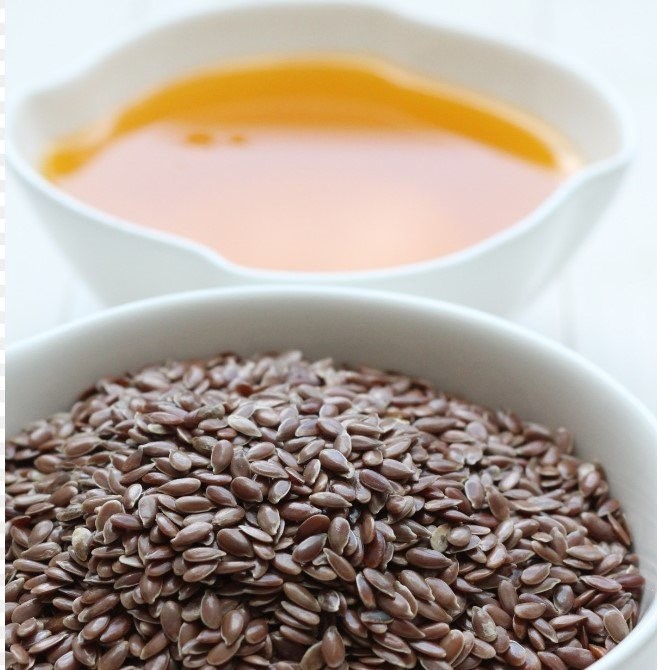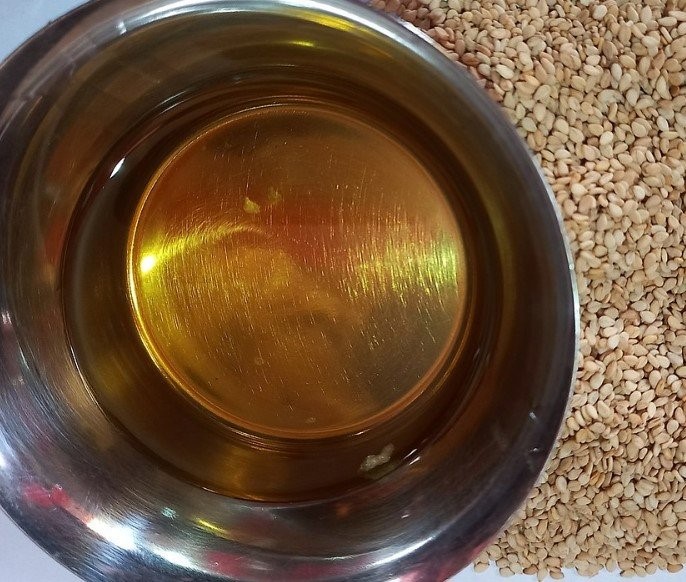The age-old proverb “Health is wealth” is a timeless wisdom. A health in bad shape hits you financially and costs you physically, mentally, and emotionally. Thyroid is also a disease affecting multiple aspects of a person’s life. According to The Lancet, around 200 million people worldwide are affected by thyroid. Iodine deficiency is one of the main causes of thyroid problems. Iodine is needed by the body to produce the thyroid hormones. While not taking enough iodine can lead to hypothyroidism, whereas an excess of it can cause hyperthyroidism. Proper nutrition plays a significant role in staying healthy. Cooking oils are something that we use daily but do we pay attention to the kind of oil that is going into the preparation of our foods? They are one of the most crucial but overlooked ingredients. Knowing what cooking oils help with the thyroid can go a long way in managing this disease.
Also Read: Is Ghee Good for your Thyroid?
Understanding the Thyroid Health
The thyroid gland produces the thyroid hormones and regulates various bodily functions.
An imbalance in the thyroid gland’s functioning affects an individual’s physical, mental, and emotional state.

A.) Thyroid Imbalance – Physical Aspects
- Metabolism-Related Disorders – Thyroid hormones play a crucial role in regulating our metabolism. An underactive or overactive thyroid can lead to gain or loss of weight.
- Problem with Hair, Skin, and Nails – Thyroid disorders can affect the health of our hair, nails, and skin.
Thyroid patients mostly experience excessive loss of hair and dry or brittle hair.
The problem can also make your skin dry or flaky. It also makes your nails brittle and slows down their growth.
B.) Thyroid Imbalance – Mental Aspects
- Fatigue – Hypothyroidism, also known as underactive thyroid, leads to fatigue, concentration, and memory-related issues.
- Anxiety Issues – Hyperthyroidism, also known as overactive thyroid, causes restlessness, anxiety, and irritable behavior.
C.) Thyroid Imbalance – Emotional Aspects
- Swings in Mood – Hypothyroidism can make a patient feel sad or depressed, whereas in hyperthyroidism a person can be seen overly reacting to emotional things.
- Cognitive Impairments – Both hyper- and hypothyroidism can affect cognitive ability which can include problems in understanding, concentration, and mental clarity.
Thyroid Health – Role of Nutrition

Various studies have shown that diet is crucial in maintaining thyroid health.
Iodine, selenium, zinc, iron, and vitamin D are certain micronutrients essential for thyroid health.
Any nutritional deficiency, especially the micronutrients mentioned above, can disrupt thyroid functioning and impair the immune system.
A thyroid patient must maintain a well-balanced diet combining all the micronutrients and macronutrients.
Also Read: WellHealth Ayurvedic Health Tips
What Cooking Oils Help with Thyroid – Role Demystified
Do you know that many dietary oils can negatively affect your thyroid health?
These oils are used daily for cooking and in large quantities in commercially produced items.
Dietary fats and oils play a crucial role in supporting our thyroid functions.
The thyroid gland relies on certain fats to produce hormones and perform essential functions.
The thyroid function is also closely linked to certain fat-soluble vitamins such as A, D, E, and K.

Consuming fats helps absorb these vitamins in the body, supporting thyroid health.
Inflammation in the body hurts the thyroid function.
Including certain fats in your diet, such as Omega-3 fatty acids, can provide anti-inflammatory benefits.
It is important to note that while fats are necessary for thyroid health, the type and balance of fats matter.
Vegetable and polyunsaturated oils can have a devastating effect on your thyroid health.
Saturated and unsaturated fats are necessary, however, excessive use of polyunsaturated fats especially in the form of vegetable oils is not good for thyroid health.
What Cooking Oils Help with Thyroid
The cases of thyroid are on the rise in modern times.
Major changes in lifestyle habits that have tremendously modified our eating habits are one of the culprits.
Let’s see what cooking oils help with thyroid:
A.) Extra Virgin Olive Oil (EVOO)

Image courtesy: emojis.sh
Various study findings indicate that animals, with normal thyroid function, consuming olive oil or olive leaf extract have seen an increase in the active thyroid hormone (T3) and a decline in the thyroid-stimulating hormone (TSH).
Additionally, in rats with an underactive thyroid, taking extra virgin olive oil (EVOO) orally improved TSH levels and reduced oxidative stress in the thyroid gland.
All the above findings suggest that consuming EVOO may support thyroid health, especially where thyroid function is compromised.
The above studies encourage thyroid patients to include EVOO in their diets.
EVOO has a smoke point of around 190-207 degrees C, which makes it suitable for most cooking methods.
B.) Coconut Oil

Image courtesy: Wikimedia.org
Coconut oil mainly contains medium-chain fatty acids (MCTs) that help boost metabolism and aid weight loss.
Consuming coconut oil is good for people with low thyroid function as it helps increase body temperature and metabolism.
C.) Avocado Oil

Image courtesy: jenikirbyhistory
Avocado oil is high in monounsaturated fats and several other vitamins and minerals such as vitamins E, K, C, B, potassium, and copper.
Avocados are rich in magnesium and selenium, essential for proper thyroid functioning.
Various thyroid-related disorders are also associated with the deficiency of magnesium and selenium.
Research suggests that the proper intake of the above nutrients is linked to better thyroid health.
According to a study, eating avocado leads to a better overall diet, getting more nutrients, and a lower risk of metabolic issues.
Another study has hinted that including avocados might reduce the risk of hypothyroidism.
D.) Flaxseed Oil

Image courtesy: pxhere.com
Flaxseeds are a rich source of Omega-3 fatty acids, ALA, lignans, and fiber.
The above elements are considered beneficial for human health because of their anti-inflammatory, and antioxidant properties and ability to control fats in the body.
The properties mentioned above make flaxseed oil a good addition to the diet of thyroid patients.
Flaxseed oil helps support healthy hormone balance and thyroid function.
E.) Fish Oil

Image courtesy: rawpixel.com
Fish oil is enriched with Omega-3 fatty acids, especially DHA and EHA.
The benefits of fish oil to a thyroid patient come from its anti-inflammatory, immune system regulating, thyroid hormone improvement, and lipid regulating properties.
Fish oil supports thyroid health by reducing inflammation in the body.
The oil can also be helpful in conditions like Hashimoto’s or Graves where the immune system attacks the thyroid. It may calm down the immune system and reduce inflammation in the thyroid gland.
Some studies suggest that omega-3 fatty acids may positively influence thyroid hormone function.
Fish oil supports the healthy fat levels thereby indirectly supporting your thyroid health.
It also helps lower triglycerides and improves cholesterol levels, benefiting overall thyroid health.
F.) Sesame Oil

Image courtesy: Wikimedia.org
According to an article published in SpringerLink, sesame is powerful in slowing down the rapid growth of thyroid cancer cells.
Thyroid patients must include sesame oil in their diet to keep their thyroid health in good shape as it has an essential nutrient called selenium.
Selenium can be helpful in the recovery of an underactive hypothyroid or Hashimoto’s Thyroiditis.
So, sesame oil can help restore the thyroid to its normal state.
Other essential minerals in sesame oil include potassium, phosphorous, magnesium, zinc, iron, sodium, and manganese.
What Cooking Oils Should Be Avoided in Thyroid
For thyroid patients, it is recommended to include heart-healthy oils with anti-inflammatory properties.
However, certain points must be kept in mind when choosing an oil:
- Avoid partially hydrogenated oils because they contain trans fats. Trans fats can cause inflammation and cardiovascular disorders.
- Limit the intake of saturated fats in palm oil and animal fats.
- Check the nutritional quality of any oil before making a purchase decision. Some highly processed vegetable oils may contain additives. Also, a high refining process leads to the loss of essential nutrients.
Tips to Keep Thyroid Health in Check

The following guidelines help keep a check on your thyroid health:
1.) Follow Mediterranean Diet (MD)
The Mediterranean diet (MD) emphasizes eating more fruits, veggies, legumes, nuts, fish, complex carbohydrates, and extra virgin olive oil (EVOO).
MD emphasizes exercising moderation when it comes to alcohol, especially red wine, during meals.
It stresses limiting the consumption of processed meat, red meat, and sugar.
2.) Goitrogenic Foods and Thyroid Disruption
Avoid eating cruciferous veggies such as cauliflower, cabbage, kale, kohlrabi, watercress, Bok choy, and Brussels sprouts in raw form and large quantities as they contain goitrin that can disrupt the thyroid function.
Soy products also contain goitrogens, which can affect the thyroid.
Eating the pearl millet can also affect the thyroid gland. Even if you are getting enough iodine in your diet, eating pearl millet is something you should be mindful of if you have a thyroid problem.
3.) Beneficial Elements for Thyroid
- Include foods rich in selenium and zinc such as Brazil nuts, seafood (oily fish), meat, sunflower seeds, whole grains, eggs, dairy products, and legumes.
- Vitamin D and calcium also play a crucial role in thyroid health.
- Fresh and unprocessed red meats are good in zinc, iron, and selenium.
- To combat vitamin deficiencies, you can include multivitamin fruit juice in your diet.
- Eating whole grains with fiber helps gut health and lowers the risk of thyroid issues.
- Adequate iodine intake is important for thyroid function. Both low and excessive intake can have negative effects.
- Your body needs iron for the thyroid enzyme TPO, which you can find in meat, fish, and dark green veggies.
4.) Plant Oils

Include cold-pressed pumpkin seed oil, sunflower oil, and extra virgin olive oil (EVOO) in your diet to help reduce inflammation.
Takeaway Message
Choosing the right cooking oil is very crucial in supporting thyroid health.
What cooking oils help with thyroid is a crucial aspect of the diet of a thyroid patient.
Thyroid patients should choose oils that have anti-inflammatory properties and are minimally processed.
Keeping moderation in mind, choose a well-balanced, diverse, and nutritious diet.
Consult a healthcare professional or a registered dietitian for a personalized thyroid-friendly diet.
Disclaimer: The views expressed in this article should not be considered as a substitute for a physician’s advice. Please consult your treating physician for more details.
Readings & References
- https://coconutoil.co.nz/PDF/Your_Thyroid_and_Coconut_Oil.pdf
- https://www.thelancet.com/journals/landia/article/PIIS2213-8587(13)70166-9/fulltext#:~:text=Thyroid%20diseases%20affect%20an%20estimated,the%20production%20of%20thyroid%20hormones.
- https://journals.lww.com/trap/fulltext/2020/17030/role_of_dietary_factors_in_thyroid_disorders_.3.aspx#:~:text=The%20evidence%20is%20strongest%20for,synthesis%20are%20iron%20and%20zinc.
- https://pubmed.ncbi.nlm.nih.gov/33561976/
- https://www.themediterraneandish.com/cooking-with-olive-oil/#:~:text=Even%20though%20olive%20oil%20has,the%20flavor%20compounds%20will%20evaporate.
- https://theavolution.com.au/blog/avocado-and-thyroid-health/
- https://www.ncbi.nlm.nih.gov/pmc/articles/PMC6567199/
- https://www.healthifyme.com/blog/flaxseed-for-thyroid/#:~:text=Flaxseed%20is%20beneficial%20for%20individuals,is%20also%20high%20in%20lignans.
- https://link.springer.com/article/10.1007/s12257-019-0151-1
- https://www.ncbi.nlm.nih.gov/pmc/articles/PMC10345702/
- https://www.mdpi.com/2072-6643/14/19/4130
- https://www.health.com/thyroid-health-7498428
- https://www.ncbi.nlm.nih.gov/pmc/articles/PMC7282437/
Very good n infòrmative article on cooking oils help with thyroid.👍
Thanks for your comment.